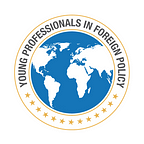Towards a New Model: A Potential Solution to Refugee Integration and Empowerment
By Alexandra McLeod
The first 100 days following a corporate merger determines whether the deal will be successful or whether it will fail. In light of this, leaders invest vast amounts of resources, time, and effort into the transition. But, when it comes to refugees integrating into American society, we lose that perspective. Resettlement agencies focus on finding refugees employment within 90 days, but they rarely have the time, resources, or bandwidth to distinguish between more or less rewarding opportunities. And as a result, resilient and resourceful entrepreneurs take entry-level positions that are below their skill level.
Existing U.S.-based resettlement programs could address the issue by working with an incubator program designed for refugees. The incubator would make sure that they get better access to job connections, mentors, and educational resources — helping them to realize their disruptive ideas and launch their businesses. Not only does this help the U.S. economy, but it would give refugees a second “blended” community. By working with people in similar circumstances, they would feel a strong sense of belonging and would be recommended jobs that are better suited to their experiences and skill sets.
At the federal level, the Office of Refugee Resettlement (ORR) helps to coordinate vital resettlement services for refugees coming into America. On a state-by-state basis, Voluntary Agency Affiliates (VOLAGs) support refugees by providing referrals for short-term cash and medical assistance, help with job development/placement, and English as a foreign language service. A small ecosystem of not-for-profits also provides specialized professional re-skilling, mental health, and disability services in select cities. All of these programs are critical to mitigating the inequalities in wealth, education, jobs, and power that refugees experience upon entering a foreign country. However, these services are usually not offered as a holistic curriculum to refugees. Furthermore, the availability and sustainability of these different services are now at risk.
Federal funding allocated for resettlement services depends on the annual refugee cap set by the U.S. State Department. In FY2018, the agency set the cap at 45,000, but the total number of refugees admitted into the United States was only 22,491, a quarter of what it was in 2016. As of FY2019, the State Department only granted 12,000 refugees asylum — a 75 percent cut to the historical average. Due to this shortage, many VOLAGs and other not-for-profits contract or even close, as they have lost the ability to sustain their operations. Other challenges, such as federal contracts expiring, insufficient levels of charitable donations, and high volunteer turnover, have compounded these problems.
To address these issues, a more sustainable method for administering these essential services should be implemented. An incubator offered early to those arriving in target cities, would be able to provide these services for entrepreneurial refugees. This idea is not new, as select programs already exist to empower refugee-owned ventures, such as the Social Entrepreneurship at the Margins (SEM) accelerator at Santa Clara University’s Miller Center for Social Entrepreneurship. However, SEM (along with similar accelerators and incubator programs) requires that the ventures be operational before they can apply to join the program. This could be fixed by having a paid program designed to kick-start refugees’ access to job connections, mentors, and resources at an early stage.
The benefits of an entrepreneurial program with an integrated outcome would be many. Refugees would have access to an education that aligns with their interests and professional goals. The structure of an incubator would also allow them to form a relationship with a blended peer group and enjoy hands-on mentorship, advice, and support as they adapt to their new life. Using human-centered design principles, like the Massachusetts Institute of Technology’s D Lab, the incubator could allow refugees to take part in the problem-solving process and help them to develop solutions that could positively impact their lives and their community.
This type of program also helps to offset operational challenges encountered by VOLAGs by consolidating and sharing resources between organizations, along with giving refugees a chance to upskill and participate in a personalized training curriculum. The incubator could help fulfill employment requirements by offering “fellowships” that use a similar model to Upwardly Global’s program, which offers paid internships and short-term training for skilled refugees. Finally, an incubator that has graduates of the program conduct diversity training could build cultural competency for local businesses and provide a reliable revenue stream for the company. The existing refugee integration system cannot and should not be replaced. However, an incubator program offered in resettlement cities would be an excellent complement to the ORR and its partner agencies. Being scalable and sustainable, it would allow entrepreneurs to access resources, mentors, and educational materials faster while improving their ability to integrate into their new communities. It would also generate economic value at the local and regional level since refugees are usually resourceful, multilingual, and resilient. Immigrants have long been recognized as one of the fundamental forces behind America’s entrepreneurial spirit. It is time that sentiment includes refugees.
Alexandra McLeod is a social entrepreneur with a passion for infrastructure and educational development. She helped co-found Bak USA, a social enterprise company that created meaningful jobs for 100+ employees from underserved communities and refugee populations. Alex currently works as a Crisis Management Consultant at Deloitte & Touche LLP. She holds a B.A. and M.Phil. from the University of Cambridge and a Master of Business Administration from the University at Buffalo.
